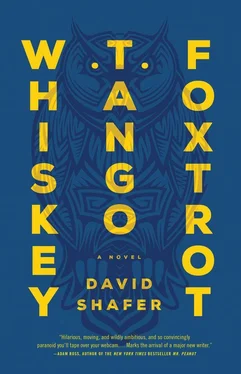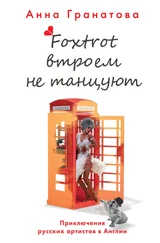“Sure. We can call it that.”
Louis was a city government reporter at the best alt-weekly in Portland. Leo knew that his job required being discreet and dogged at the same time. He thought Louis might be a good resource for how a non-schizophrenic person would go about confirming the existence of a secret cyberplot and the online underground opposing it.
Louis let the dog off leash and she shed five years, dashed away into the green brush beside the trail. The two men walked behind her.
While Leo talked, Louis kept his hands in his pockets and his eyes on the trail ahead. He asked only a few questions. He was pushing the pace. Leo was breathing hard as he spoke. Cola coursed around them, a house dog returned to her element.
After a mile, Louis said, “I thought you decided all that stuff was delusional.”
Leo stopped there, where the trail offered a particularly nice view of distant industry. A heavily used bank of the Willamette was far below them, far enough below to look like it was from a storybook: train cars and brightly colored tanks and stacks, their grimy, carbon-economy purpose obscured by the distance, the view softened and Fenimore-Coopered by the trailside conifers in the foreground.
“Some of it was, some of it wasn’t,” said Leo.
“That’s convenient.”
“No, Louis, it’s very in convenient, actually.”
Louis regarded the view, and then his friend. “Well, I can look into what you said about SineCo, I guess. I know a guy who does that kind of reporting.”
Yes. Someone to help him with this .
“You lost a dog?” called a man from the bank ten yards above them.
Louis turned quickly. “She’s not lost,” he said. “I’m right here.” He whistled for his dog. Cola sprang to go to him, but the man had her tight by the scruff of her neck and he yanked her back in midair. Cola yelped in pain and surprise.
“She’s got no collar,” said the man evenly. “Could be a stray.”
Louis moved toward his dog, and the man clamped down harder on her neck, pushing her into the ground. Louis stopped moving forward. He held up one hand to display leash and collar. “Easy now,” he said.
“That’s okay,” said the man brightly. “They got microchips, now, in these dogs.” He took what looked like a Node from the pocket of his too-heavy coat and held it scanner-style against Cola’s shaking shoulder blades.
“Yeah. Here it is. You Louis Hanson? Live on Northeast Twenty-Fifth Street? Two little girls in day care at Sunflower’s, on Killingsworth?”
Louis said nothing. Leo said nothing. The man gripped the dog.
Then Louis said carefully, “Yeah, that’s me.” The man let go of Cola. She raced to Louis, who slipped her collar on her and began walking quickly downhill. Leo stood rooted to the trail, looking at the man.
“Let’s go,” Leo heard Louis say, his voice weird with fear and urgency.
The man on the hill nodded at him, knowing, dismissive. “Yeah. Best be on your way, Crane.”
Louis was ashen and shaking on the drive back across town. Cola licked Leo wetly on the ear. Getting out of the little Mazda at his house, Leo said to Louis, “You forget about what I said, okay?”
“Yeah, that’s exactly what I’m going to do, Leo,” said Louis, looking out the windshield. Then turning to look at his friend, he said, “You can understand that, right, Leo? My girls.”
“Perfectly.”
After that, Leo was more careful. He acted exactly like a man who was not trying to get to the bottom of something. Walk. Breakfast. Meds. Meeting. Look for work. Clean too-big house. Walk. Dinner. Sleep.
The watchers seemed to be everywhere. Or were those just random men, thick-coated and alone, nearby? They could be dads on the way home from work, guys heading back from the gym, a legitimate telephone repairman in a cherry picker across the intersection from Leo’s house.
The man buying one loaf of bread and a quart of milk behind him in line at the New Seasons could have been just that. But why wasn’t he using the express lane in the busy store? Maybe because this checker was hot. So after she rang him up, Leo said loudly, “Damn. Forgot something. Be right back.” He left one heavy bag of purchased groceries at the end of the station to attest to his return. He grabbed the other bag and walked back into the store’s aisles. Then he ducked quickly through Bulk and into Produce. He slipped on a squished grape, lost his balance, and felt the twenty lemons in his bag rumble weightless and almost spill. He caught himself and ducked through a portal made of hanging plastic strips, into the store’s offstage. Busy employees took little notice of him. He found an exit by the loading dock.
If that bread-and-milk buyer had been following him, he wasn’t anymore, Leo was certain. So he went to his local library and found a public computer in a carrel at the back. He spent an hour online.
That night Leo squeezed twenty lemons and soaked sheets of raggy paper in their juice.
He’d tried this once, at Brand-New Day. Well, not this, exactly. He’d let the children paint with lemon juice on a big roll of white butcher paper; they’d used fat ink brushes. The lemon juice dried to nothing, and he rolled up the work again. Then he brought the paper outside and unrolled it in a bright sunny corner of the OPZ. In minutes, the sunlight exposed the lemon-juice figures on the long roll: hand turkeys and love hearts and dinosaurs in proud, confident strokes; misspelled names a foot tall. The children cheered wildly.
This was a more delicate operation. But after a few hours of experimenting with types of paper, length of soak, and drying time, Leo had produced the result he needed. Then he had to figure out how to increase the impression force on the little electric Smith Corona that he’d picked up at a yard sale. He found the knob that adjusted that. Then he slipped one of his lemon papers into the typewriter’s platen, sandwiched it between two plain white sheets, and wrote a letter to Lola Montes.
Leila was driving downtown to have dinner with Roxana at her office. She was late, because the 405 was crawling. A huge white box van— Stan’s Sewerscopes: We Look Down There —had been behind her since at least Balboa. Was it the van that was making her nervous? Or was she nervous because she had decided to ask for Roxana’s help?
Roxana was still frosty about Leila’s unexplained delay in getting home. Big sisters like to be kept in the loop. Leila hadn’t wanted to get into the whole thing with Roxana, because where Dylan was skeptical, Roxana would be scathing. Plus, Leila hadn’t gotten her alone yet. Roxana lived in a spare and highly modified Echo Park bungalow. She mostly went between home and whatever office, driven by her mobility assistant and body man, a now-old Pole named Eddie who had been at her side for seventeen years.
Roxana was born a phocomelus. That is, she was born with phocomelia syndrome. That is, Roxana had no arms. Her first years, in Iran, she was a travesty. Take the arms off a baby and what’s left looks so much like a fish that Mariam’s friends started avoiding her — most were saddened and secretly disgusted by the daughter. The market is the grown woman’s school yard, and Mariam found herself alone buying dates, buying butter, sipping tea.
When the Majnouns escaped to America, it got better. There were programs for Roxana; there was help. Iranian refugees were cool for a while there, in academia. Cyrus earned a master’s degree in education, and the Majnouns met people eager to show support for the exiled family. Grants and loans paid for home modifications; other costs were defrayed or subsidized in kind, mysterious ways.
Читать дальше












